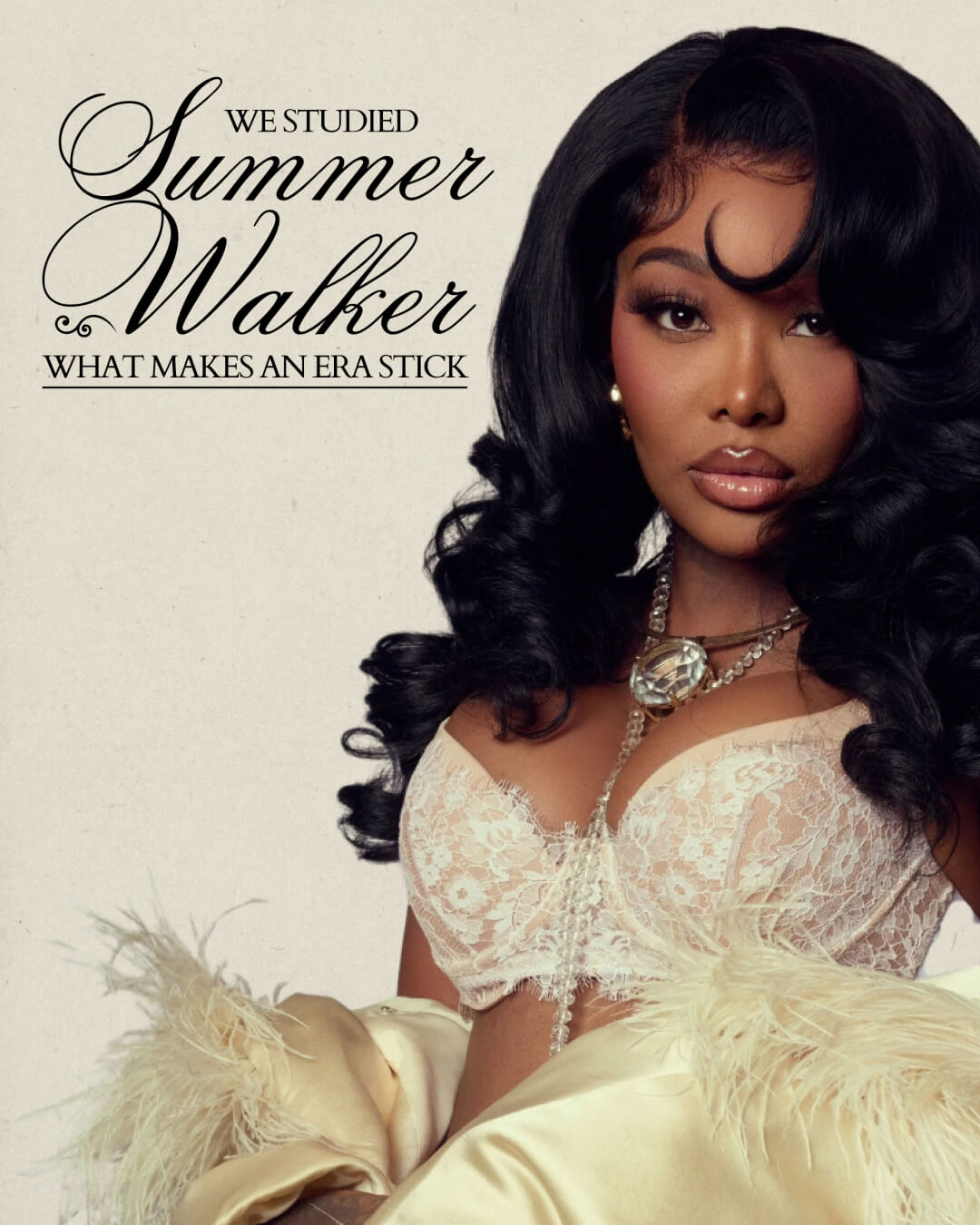
How to Pay Your Collaborators with Venice Splits
When entering the music industry, understanding how to split royalties is crucial for all parties involved, from the artist to the music producer and record label. Royalty splits typically occur after a song is released and earnings are generated, but it's important to have these agreements in place early. With Venice, you can easily manage royalty splits and ensure everyone is paid fairly through our automated Venice Splits feature. Sign up today to simplify your royalty management.
<"BODY-CTA">
The process involves negotiating royalty splits for various streams of revenue, including mechanical royalties (from physical or digital sales) and sound recording royalties (from streaming or radio play). When working with a publishing company, these negotiations may also include a producer fee, which is often paid upfront, in addition to the producer’s share of net royalties. Clear communication with the record label and a well-drafted contract can help ensure that music royalties are distributed fairly among all contributors.

Crafting Artist Development Agreements: Balancing Rights and Royalties
In the realm of artist development, it’s essential to have a legal document that outlines the roles and responsibilities of all parties, ensuring clarity around royalties and rights. Whether working with a distribution service or producers, a written agreement should specify the flat fee for services and the division of royalties based on the underlying composition and the final music product.
These agreements must also address publishing rights, ensuring the artist's name and contributions are properly credited. Beyond recorded music, live concerts can also play a significant role in the artist’s revenue stream, and the agreement should align with industry standards to protect both the producer and the artist as they work toward the final product.
Negotiating royalty splits
Negotiating royalty splits requires clear communication and a thorough understanding of each party's contribution to the music project. Whether it’s an artist, producer, co-writer, or a publishing company, ensuring that each contributor’s role is properly acknowledged is crucial for fair compensation. Typically, royalty splits are based on the creative input and financial investments made during production.
Key Considerations for Royalty Splits
When discussing royalty splits, make sure to cover important details like mechanical royalties (from sales and streams), performance royalties, and producer points. You should also agree on upfront fees, co-writing credits, and ownership percentages to avoid any future problems. By putting these terms in writing early on, everyone involved can ensure fairness and protect their earnings as the song starts making money.
How to Split Royalties with Venice Splits
Managing royalty splits can be complex, especially in collaborative projects where multiple parties—such as co-writers, producers, sound engineers, and publishing companies—are involved. However, Venice simplifies the process with its Venice Splits feature, ensuring all contributors are compensated fairly.
Pay Your Collaborators for Free with Venice Splits
Venice makes royalty payouts easy and accessible, providing free support to all collaborators, regardless of their membership status. Your collaborators don’t need a Venice account to receive their share of performance, mechanical, or digital royalties. Whether you're working with independent artists or established names, Venice automatically handles royalty splits, saving you time and eliminating the hassle of manually tracking payments.
.avif)
How Collaborator Splits Work
Venice members can invite a collaborator to receive their owed royalties by selecting the 'Enter Splits' option on the track in the Release Summary page. After entering your partner's name and email, the collaborator will receive an invitation to create a free Venice account and link their Stripe account for payment. Venice will then automate the management of your percentage splits and ensure monthly royalty payouts to your collaborators, including earnings from digital downloads, streaming services like Apple Music, radio broadcasts, and live performances. Whether you're splitting royalties between individuals or with a publishing company, Venice ensures a seamless, hassle-free process.
Different Types of Royalties Explained
When negotiating royalty splits, it’s important to understand the different types of royalties that can be generated from a song. Beyond mechanical royalties (earned from sales and streams) and sound recording royalties (from streaming platforms and radio play), artists and producers should be aware of sync royalties, performance royalties, and neighboring rights.
Sync royalties are paid when a song is used in visual media, like TV shows, films, or commercials. Performance royalties are generated when a song is performed live or played publicly in venues, bars, or on the radio, and are collected by performance rights organizations (PROs) such as ASCAP, BMI, or SESAC. Neighboring rights compensate performers and sound recording owners when their work is broadcast or publicly performed internationally. Each of these royalties may be split differently among collaborators, so understanding these distinctions is crucial to ensure fair compensation for all parties.
Master vs. Composition: Understanding Music Ownership and Royalties
In addition to understanding the different types of royalties, it’s essential to distinguish between a master recording and a composition, as this impacts how royalties are divided.
Master Recording
The master recording refers to the final sound recording of a song—the version that listeners hear when they stream, download, or purchase music. It is typically owned by the entity or individual who financed or produced the recording, such as a record label or an independent artist. Master rights generate royalties from the use of the recording, including revenue from streaming platforms, digital downloads, physical sales, and sync licensing. The owner of the master controls how these earnings are split, based on agreements made with artists, producers, or labels.
Composition
The composition refers to the underlying musical structure of the song—the melody, lyrics, and arrangement. It is owned by the songwriters and possibly their publishers. Composition rights generate royalties from public performances, radio play, and covers of the song. These royalties are collected by performance rights organizations (PROs) like ASCAP, BMI, or SESAC and split according to agreements between the songwriters and any publishers involved.
Understanding both master and composition rights helps artists navigate how their work generates royalties, ensuring that all contributors are fairly compensated. Ownership of each right impacts who gets paid and how much they receive from different royalty streams, making it essential to define these clearly in contracts.
How to Create Fair Royalty Agreements: Contracts, Payments, and Splits
How to Draft Split Contracts
When drafting split contracts for music creation, it’s essential to ensure fair agreements between all parties involved, including recording artists, producers, and publishing. A solid contract should outline how net royalties are distributed, accounting for the producer fee, which may include both an upfront fee and automatic royalty splits. Record labels often factor in recording costs as part of the deal, which can affect the distribution of royalties from sound recordings. Proper documentation, such as split sheets, ensures that contributors receive co-writing credit for their role in creating both the lyrics and the actual recording. By laying out these terms in advance, all collaborators can protect their rights and enjoy a fair share of the music’s success.

Free Collaborator Support with Venice
After distributing your song, you or your co-writers may have questions about royalty payouts. With Venice, collaborators can reach out directly to Venice Support for assistance, eliminating the need for middle-manning between Venice and your partners. This free support ensures transparency and clarity throughout the royalty split process, giving you peace of mind as your release earns revenue.
Download our free Split Sheet template below to have on hand:

Split Sheet Template
Before you distribute your collaborative song, it’s important to sit down with your partners to fill out a Split Sheet. Split sheets are vital written agreements that identify all contributors to a song, including co-writers, producers, and other creators, along with their respective ownership percentages. These percentages determine how these splits will work when dividing royalties, including sound recording royalties, sync royalties, and performance royalties.
Once signed, the split sheet becomes a legally binding document, outlining everything from producer points to ownership rights. This ensures that even indie producers and independent artists are protected, and everyone receives their fair share of royalties from revenues generated through streaming platforms, radio play, or visual media. Download our free split sheet template below to ensure fair compensation for all collaborators.

Ensuring Fair and Transparent Royalty Splits in the Music Industry
Understanding how to split royalties is vital to ensuring that all contributors to a sound recording are fairly compensated. Royalty splits should be clearly outlined in agreements that specify how sound recording royalties and music royalties are divided among the music producer, publishing company, and co-writers. Whether through predetermined percentage splits or other agreed-upon terms, these arrangements help protect the rights and financial interests of all parties involved in creating and distributing music. Ultimately, transparent and equitable royalty splits ensure lasting partnerships and long-term success in the music industry.

How to Avoid Common Disputes in Royalty Splits
Disputes over royalty splits can arise at any stage of music creation, often due to vague agreements or misunderstandings about contributions. To avoid these conflicts, artists and their collaborators should establish clear terms from the beginning. First, ensure that a split sheet is completed and signed by all parties. This document will clarify whether royalties are divided based on an equal share model or according to individual contributions, protecting everyone involved when royalties are paid out. Additionally, it’s crucial to formalize agreements about producer points (the percentage of royalties a producer receives) and to distinguish between a flat fee for services and backend royalties. By keeping lines of communication open and setting expectations early, artists can reduce the risk of costly legal disputes and ensure a smoother distribution of royalties as their song generates revenue.
How Streaming Has Changed Royalty Splits
The rise of streaming platforms like Spotify, Apple Music, and YouTube has drastically altered how royalties are distributed in the music industry. Traditionally, artists and collaborators would earn income from album sales or radio play, but with streaming, revenue is generated in fractions of a penny per play. As a result, royalty splits have become more complex, with independent artists, producers, and co-writers needing to negotiate how to divide the smaller earnings from platforms that generate billions of streams.
Fair compensation within the industry
One key issue with streaming is that sound recording royalties (paid to the recording owner) typically account for the majority of revenue, while songwriting royalties (paid to the creators of the underlying composition) make up a smaller share. This shift has sparked debates about fair compensation in the digital age and made it essential for artists to protect their financial interests by securing clear royalty splits early in the process.
Start Distributing Your Songs with Collaborators
Sign up for Venice to release unlimited tracks for just $50/mo. From your account, you’ll be able to add collaborators for free, ensuring everyone is compensated fairly through automatic royalty splits. Venice handles everything, from sound engineers to co-writers, without you having to manually manage percentages or producers. If you have a publisher, Venice also ensures they’re included in the royalty distribution, making the process seamless for everyone involved.
With Venice, you don’t have to worry about chasing down payments or keeping track of complex split agreements—everything is handled automatically, so you and your collaborators can focus on what matters most: creating and sharing your music. Get started with Venice today, and simplify the way you release and manage your music, ensuring every contributor is fairly paid.
Add Collaborators For Free When You Release With Venice
Add Collaborators For Free When You Release With Venice
You may also want to read...
LABEL-LEVEL ROLLOUT STRATEGIES
.svg)






